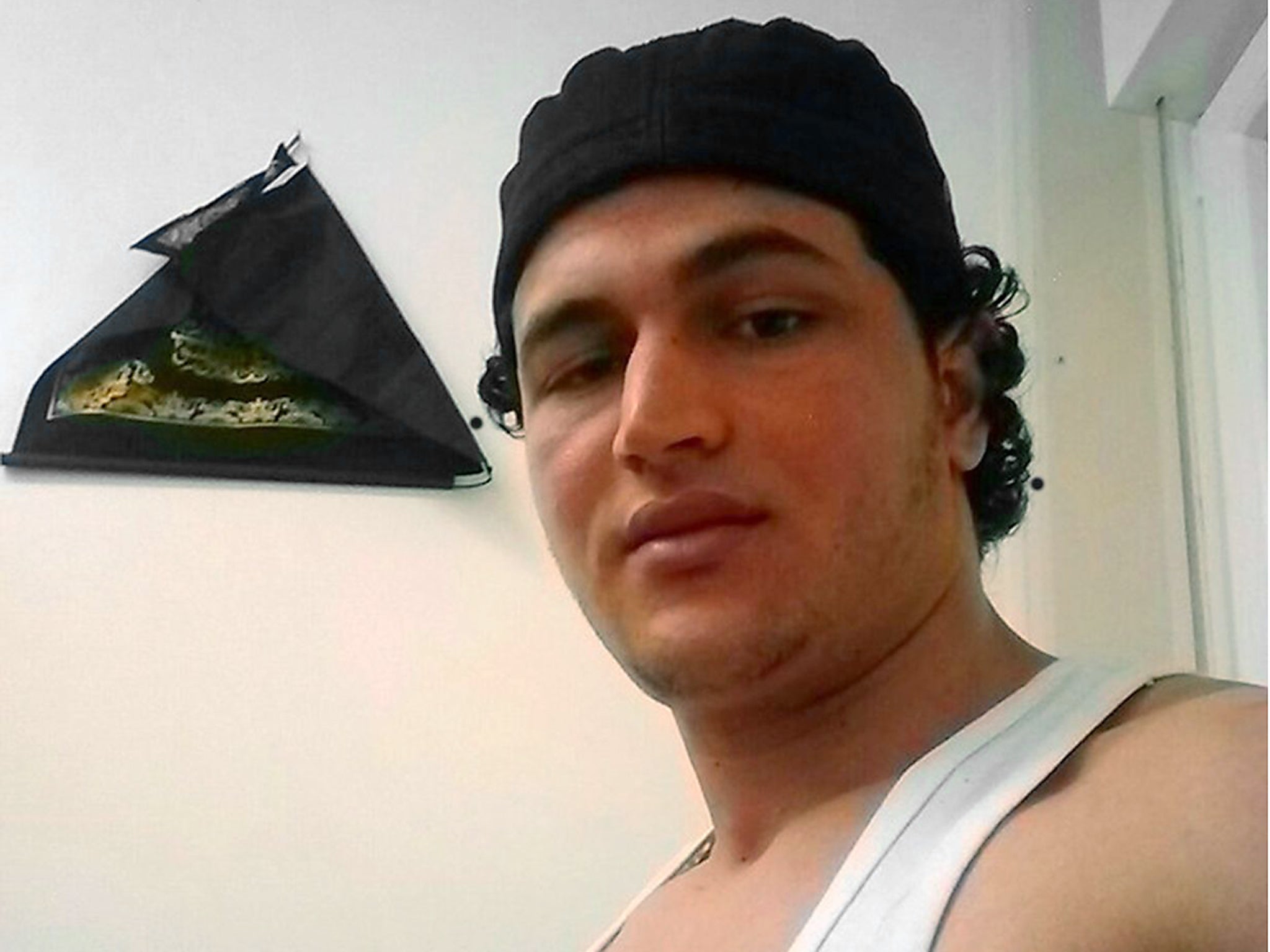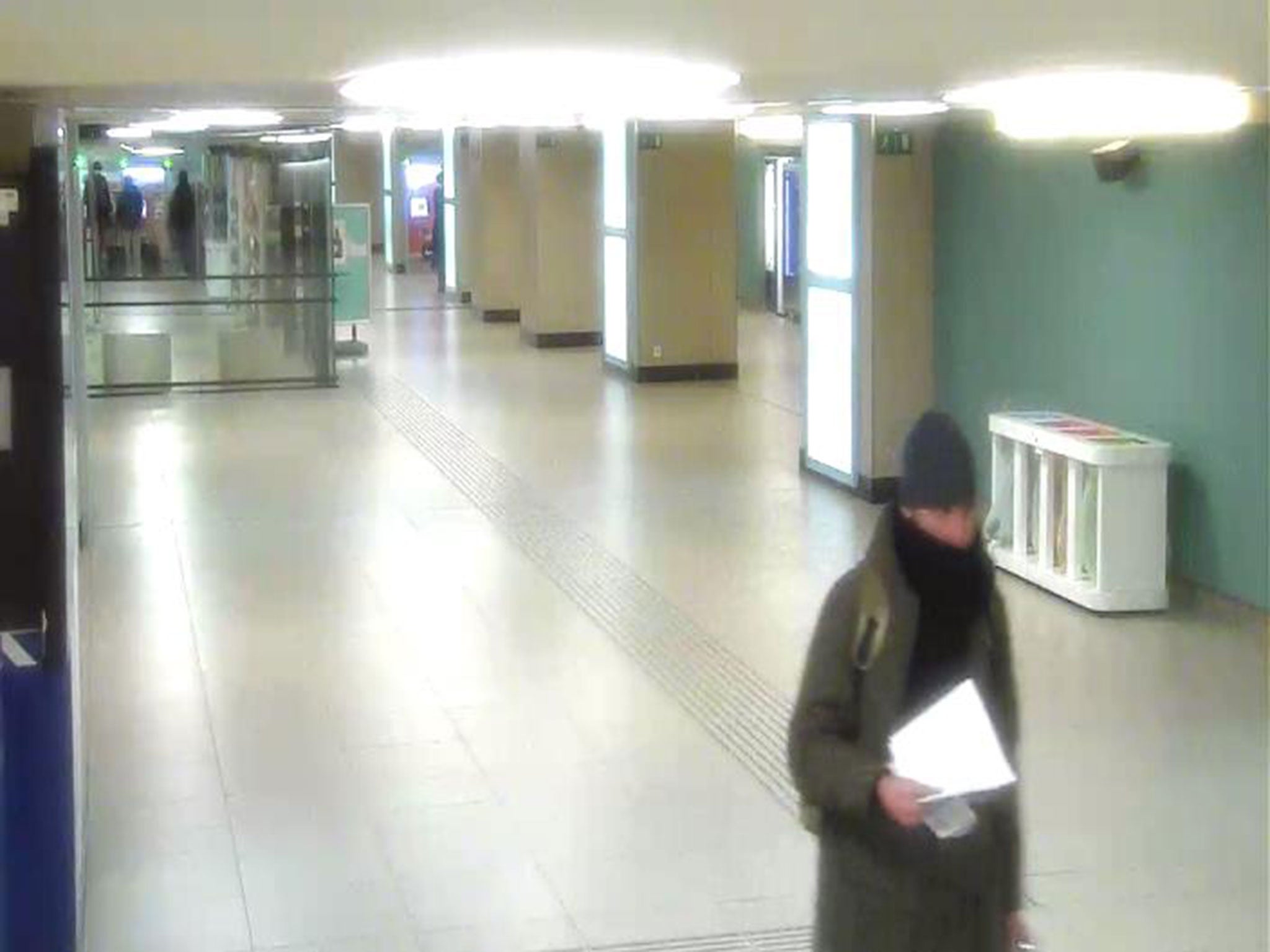Berlin Christmas market attack: Tunisian man who dined with Anis Amri on eve of massacre arrested as probe continues
New evidence shows Amri travelled through at least five European countries before being shot

Your support helps us to tell the story
From reproductive rights to climate change to Big Tech, The Independent is on the ground when the story is developing. Whether it's investigating the financials of Elon Musk's pro-Trump PAC or producing our latest documentary, 'The A Word', which shines a light on the American women fighting for reproductive rights, we know how important it is to parse out the facts from the messaging.
At such a critical moment in US history, we need reporters on the ground. Your donation allows us to keep sending journalists to speak to both sides of the story.
The Independent is trusted by Americans across the entire political spectrum. And unlike many other quality news outlets, we choose not to lock Americans out of our reporting and analysis with paywalls. We believe quality journalism should be available to everyone, paid for by those who can afford it.
Your support makes all the difference.A Tunisian man who dined with the Berlin attacker the night before he carried out his massacre has been arrested as a possible accomplice in the terror attack.
Prosecutors said the 26-year-old suspect was arrested at refugee accommodation in Berlin as the investigation continues into Anis Amri’s contacts in Germany and across Europe.
The arrested man had known Amri since the end of 2015 and had a meal out with the Isis supporter at a restaurant in the German capital’s Gesundbrunnen on 18 December.
Frauke Köhler, a spokeswoman for federal prosecutors, said the pair “talked intensely”.
“From this background the suspicion arose that the suspect may have been involved in the attack, or at least knew of Amri’s plans,” she added.
“During searches, other means of communication have been confiscated that are currently being evaluated.”
The suspect was temporarily detained on Tuesday, with a separate arrest warrant issued by Berlin prosecutors on Wednesday.
It came as more searches were carried out at the home of Amri’s former roommate, who is being treated as a witness in the case.
The terrorist shared a room with the man in central Berlin from autumn onwards, with analysis showing Amri attempted to contact him in the morning and afternoon of the day of the attack.
“Whether that resulted in a conversation taking place is still open,” Ms Köhler said.
Amri, 24, ploughed a hijacked lorry into a Christmas market next to Berlin’s famous Kaiser Wilhelm Memorial Church on 19 December after pledging allegiance to Isis in a video the group later posted online.
He killed 12 people, including the lorry’s Polish driver Lukasz Urban, who was found shot dead in the front seat.
Investigators believe Amri hijacked the vehicle while it was stopped in Friedrich-Krause-Ufer, after visiting the Fussilet 33 mosque, which has long been accused of extremist links.
He shot Mr Urban with the same pistol late used to fire at Italian police in the gun battle where Amri was killed, then drove the lorry towards the Christmas market in Breitscheidplatz.
A dashcam caught the vehicle accelerating as it veered off the busy road and into crowds enjoying festive stalls and mulled wine, with the lorry’s automatic braking system preventing more deaths by bringing it to a halt.
Amri ran from the cab as survivors attempted to give chase at around 8.30pm local time. Surveillance footage from the Zoologischer Garten station, a few minutes' walk from the Christmas market, appears to show Amri shortly after the attack.
Ms Köhler said investigators believe he knew he was being watched, turning to security cameras and raising a finger in a symbol that has become associated with Islamists.
Amri then fled Germany via countries including the Netherlands, Belgium and France, before reaching Italy, despite being hunted as Europe’s most wanted man under an international arrest warrant.

Dutch police have traced him to Nijmegen railway station on 21 December, before he travelled onwards to Amsterdam and caught another train to Brussels.
Belgium’s federal prosecutor said Amri spent two hours at the Brussels North railway station that evening, before travelling onwards to France.
Officials released CCTV footage showing Amri dressed in a khaki coat, woollen hat a large black scarf that partially covered his face.
He was shot dead in the early hours of 23 December by police in Milan, who stopped the suspect to ask for identification while patrolling near a railway station.
Amri immediately opened fire and shot one of the officers in the shoulder before being chased down. Police continue to investigate how he obtained his weapon.
Italian authorities attempted to deport Amri at the end of a prison sentence for arson in Sicily, after he arrived in Europe by boat in 2011, but were unable to send him to Tunisia because the government lacked proof of his nationality.
He then travelled onwards to Germany, arriving in July 2015, where authorities swiftly identified him as a terror risk but dropped an investigation into a previous alleged terror plot in September.
German authorities tried to deport Amri after rejecting his asylum application in June last year but the attempts were also rebuffed by Tunisia. Documents that would have allowed him to be expelled did not arrive until two days after the attack.
Join our commenting forum
Join thought-provoking conversations, follow other Independent readers and see their replies
Comments